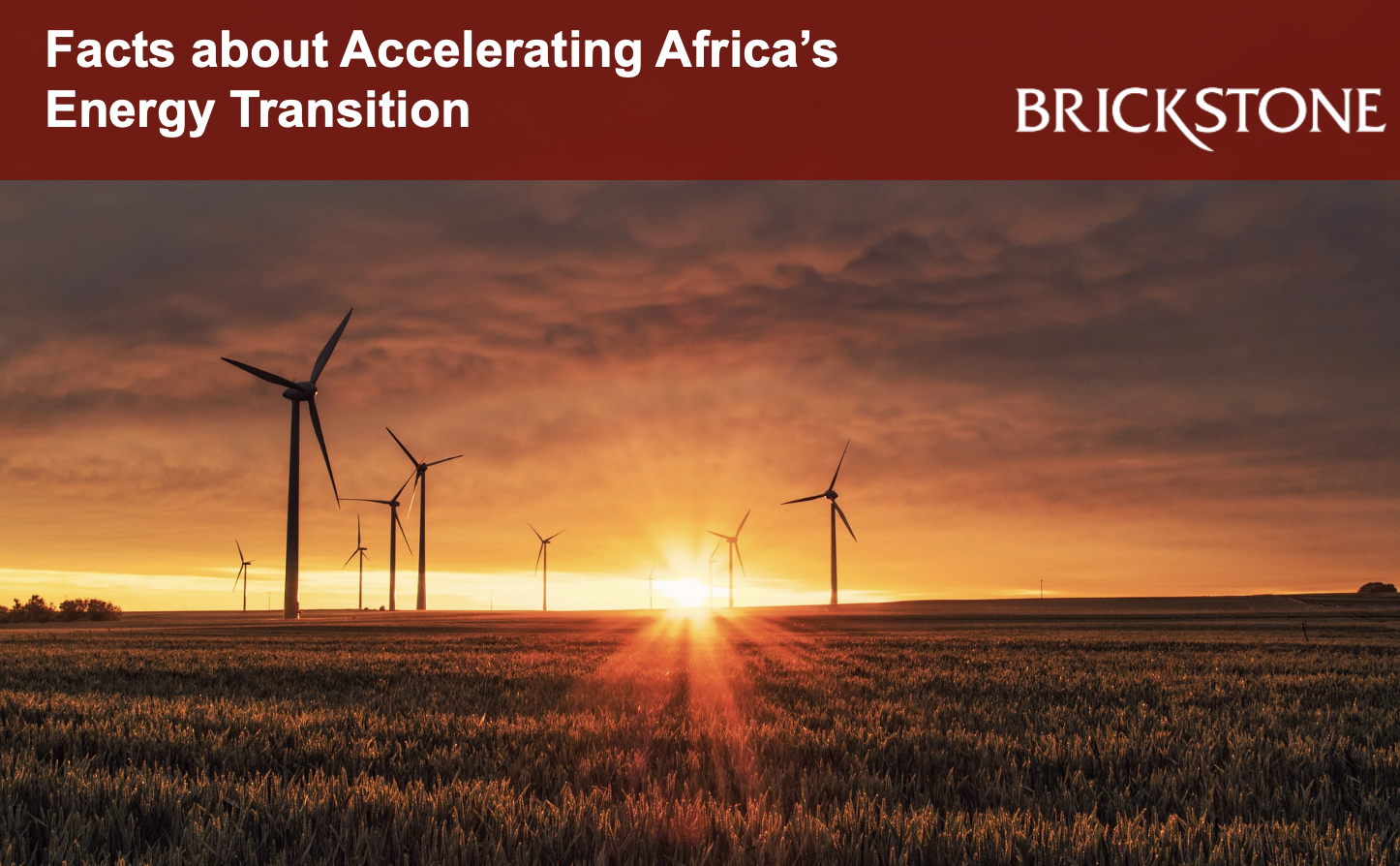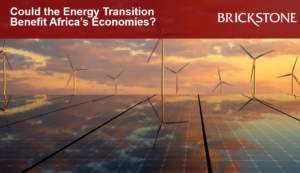Facts about Accelerating Africa’s Energy Transition
Africa’s energy transition topped the agenda at the recently concluded Nigeria International Energy Summit (NIES) in Abuja. As the world’s least developed continent, Africa is expected to be home to nearly 2.5 billion people by 2050. Eighty percent of them will live in Sub-Saharan Africa, where less than half of all people have access to electricity today, and as little as 16% have access to clean cooking fuels and technologies. The continent’s energy transition is a huge task and will cost an estimated $100 billion annually between 2020 and 2040.
This article by Brickstone Africa reviews PremiumTimes publication on the need for accelerating Africa’s energy transition.
Africa’s Energy Transition
While the developed world clamours for Africa to accelerate the development of its massive renewable energy sources, Africa must also be given time to transit and allowed to use its natural gas as a transition fuel, just like it is the case in Germany, as well as Europe. What is acceptable for Germany and Europe must be acceptable for Africa.
The current energy transition – the shift from fossil fuels such as oil and coal to sustainable energy sources such as wind and solar – is starting to accelerate. From just 1% of the global energy mix in 1950, renewable energy is now set to account for 50% of our energy needs by 2040.
Industry experts, decision-makers, regulators and key government officials waded into deliberations on the energy transition, including how to build a sustainable energy future for Africa, deregulation, utilizing gas as a transition fuel, sectoral challenges, local content, the role of National Oil Companies in the transition and implementing the Nigerian Petroleum Industry Act, amongst others.
Giving a keynote address at the event, the Vice President of Nigeria, Prof Yemi Osinbanjo, explained that Africa can be much more effective in developing its own agenda and energy mix. He said: “There are two existential crises for us Africans; global warming and energy poverty, which results in millions of our people being poor. There’s no question at all for us in this part of the world that both must go simultaneously so that people can have access to power. That is why gas must remain an important transition fuel. We must think in both terms.”
In a session themed ‘Building the Energy for Tomorrow’, Dr. Ainojie Alex Irune, Chief Operating Officer, Oando Energy Resources and Executive Director, Oando PLC stressed the need for Africa to act fast and act now.
While the developed world clamours for Africa to accelerate the development of its massive renewable energy sources, Africa must also be given time to transit and allowed to use its natural gas as a transition fuel.
Sharing his thoughts on creating a sustainable energy future, Dr. Irune said: “For the first time in the history of the world, we are going to see energy growth and demand outstrip average economic growth across the world, in a time where the energy mix is still being contended; contended because the primarily developed world has a view of what this mix should be, and Africa has a different perspective.
Against the backdrop of our youth population, poverty index and intra-African collaboration, we need to get impatient about delivering value and development to our people. The molecule of oil in our ground must be excavated with urgency; I’m talking about oil, we must create the balance sheet that will fund the transition. The PIA has come to make that journey a little less tortuous and whilst the PIA is not perfect, it is a starting point; but also understand that the PIA can quickly become obsolete because of the pace of change.”
NJ Ayuk, Executive Chairman of Africa Energy Chamber, in a session themed ‘ Security vs Energy Transition- Global Perspective for a Sustainable Energy Future’, explained why the continent needs to leverage its immediate resources to eliminate energy poverty. He said, “Africa is a gas continent. I wish we had discovered gas before we discovered oil. We are in Nigeria, Africa’s gas giant, and must continue working towards creating an enabling environment and incentivising participation in the gas value chain.” He further called on the government to cut the red tape and sign all the pending gas deals that could spur the country to a sustainable energy future.
Read more here.






